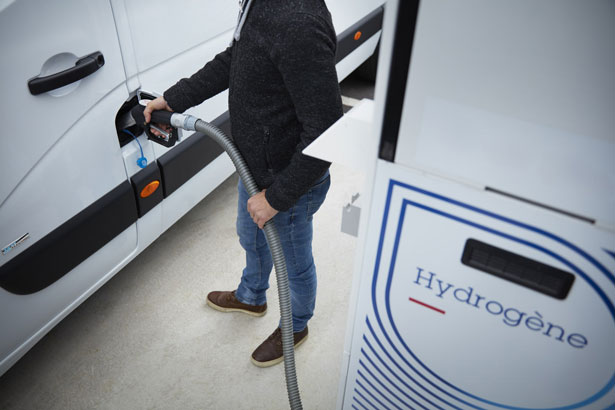
Renault Leads The Way In New Electric Vehicle Technology
Electric cars are on the rise and in an effort to drive sustainable mobility, Renault is turning to cleaner technology and engines. When talking about electric cars, there is traditionally a distinction between “conventional electric vehicles” and “hydrogen vehicles”, but now with Renault’s innovation in the hydrogen fuel cell space, the future of electric cars looks a little different.
A New Electric Technology
Hydrogen fuel cell vehicles are part of the electric-car family, but they use hydrogen as a source of energy. Commonly known as an FCEV (fuel cell electric vehicle), this vehicle uses hydrogen to power a 100 percent electric motor. A hydrogen fuel cell electric vehicle uses dihydrogen (H2) as fuel. The fuel cell is supplied with this hydrogen, and oxygen from the surrounding air. These gases, upon contact inside the fuel cell, provoke an electrochemical reaction which produces an electric current, heat and water vapour. This electric current is then used to power an electric motor which then propels the vehicle.
Electric vehicles on the other hand use lithium-ion batteries to store electric energy taken from the grid each time they are plugged in and need a power supply. With hydrogen vehicles, the electricity required to run the powertrain is supplied by the fuel cell, which itself uses hydrogen stored on board the vehicle. It powers a battery, which in turn powers the electric motor.
There are many advantages to a hydrogen fuel cell car. It boasts all the advantages of driving an electric vehicle but also has the advantage of combining reduced refuelling times and neutral carbon emissions when driving. Long journeys are made easy with hydrogen refuelling taking only three to five minutes as opposed to full-electric models!
Renault’s Journey With Hydrogen Fuel Cell Electric Vehicles
Renault Group has more than a decade of experience in electric vehicles and already has experience with hydrogen fuel cell technology too. It was used for the first time in 2014 to equip a vehicle in its utility line-up, the Renault Kangoo Z.E. Hydrogen. Then in 2021, with HYVIA, the hydrogen-mobility joint venture owned equally by Renault Group and Plug.
HYVIA now offers three LCVs with hydrogen fuel cell technology providing professional customers with low-carbon mobility that won’t impact their business: the Master Van H2-TECH, Master Chassis Cabin H2-TECH and Master City Bus H2-TECH.
Renault is now also exploring ways to harness this technology for private vehicles, capitalising on the hydrogen networks that will have been developed. In 2022, Renault unveiled the Renault Scenic Vision, its very first private concept car featuring a unique electric-hydrogen hybrid engine, combining the advantages of fuel-cell and EV battery technology in a hydrogen fuel cell electric vehicle (FCEV).
The future of electric vehicles looks even brighter than before with these leaps in innovation by manufacturers like Renault. The only question would be if the infrastructure developments needed for these innovations can keep up. Either way, electric vehicles are making waves and are here to stay.

